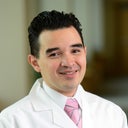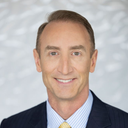Patients should remember that having a procedure performed in the US in a certified facility by a board certified physician guarantees adherence to the highest standards of safety. The governmental oversight which protects patients by establishing these standards cannot be overstressed. With respect to your specific question, large volume liposuction is a much higher risk procedure than many patients appreciate. The volume limits for office lipoaspirate is generally 4-5 liters (not pure fat). Any more than that usually necessitates overnight admission to the hospital for monitoring. This may explain the perception that aggressive liposuction is best pursued elsewhere. However, potential cosmetic tourists should be informed of the risks they may be taking. Understanding why “lipo-tourism” or cosmetic surgery tourism is an attractive option for those seeking plastic surgery is not difficult. Who would not be interested in combining what many believe to be “minor” surgery with travel to an exotic destination at a fraction of the cost of the equivalent procedure domestically? What is easily overlooked in the excitement of monetary savings are the potential physical and health costs associated with post operative complications (both in terms of the patient’s financial liability and subsequent morbidity).








